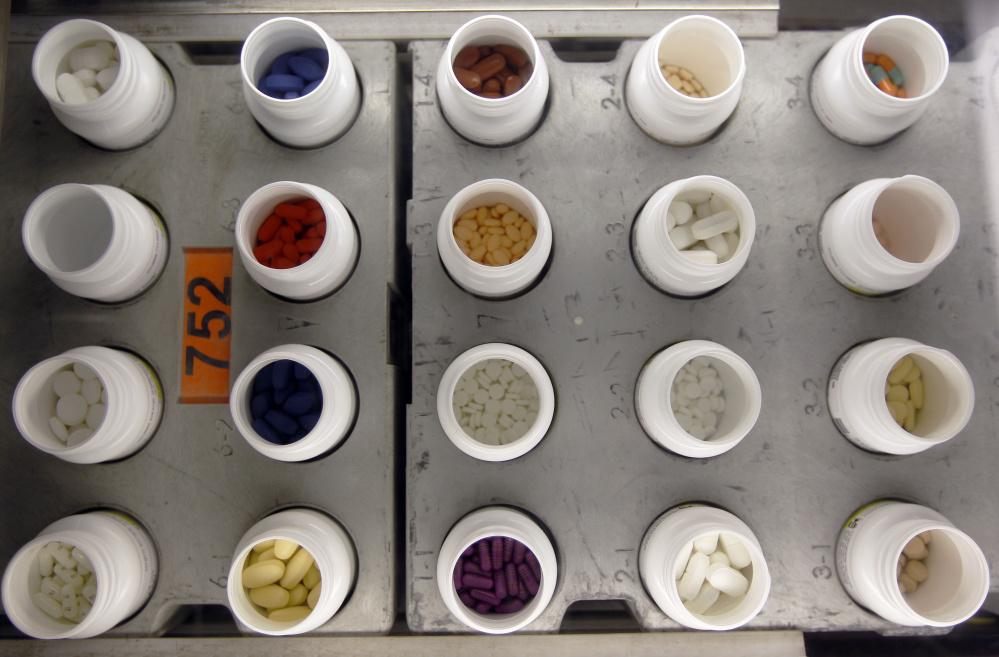TRENTON, N.J. — Hillary Clinton was among the patients and politicians who voiced outrage this week after it became public that the price of a 62-year-old drug used to treat a life-threatening infection had been raised by over 5,000 percent.
But exorbitant drug price hikes like that could become even more common because of decreasing competition in the pharmaceutical industry, among other factors.
The issue was brought to light after a Sunday article by The New York Times.
The story featured Turing Pharmaceuticals, a startup that paid Impax Laboratories $55 million in August for rights to Daraprim. It’s the only approved treatment for a rare parasitic infection called toxoplasmosis that mainly strikes pregnant women, cancer patients and AIDS patients.
Turing’s CEO, former hedge fund manager Martin Shkreli, soon raised Daraprim’s price from $13.50 to $750 per pill.
Clinton called the move “price gouging,” and then released proposals to address some aspects of rising drug prices.
Tuesday after the public outcry, Shkreli said he would reduce the price of Daraprim. A Turing spokesman told The Associated Press that Turing is committed to “a serious price adjustment,” but hasn’t decided how much or set a timetable.
But rising drug prices are likely to remain an issue for the industry. Here are some questions and answers on the subject:
Q: How can these price spikes happen?
A: Companies generally can charge what they want because the U.S. government doesn’t regulate medicine prices, as other countries do. The powerful pharmaceutical lobby has repeatedly fended off proposals that would cut into profits, from setting up price controls to allowing Medicare to negotiate discounts on drugs it buys for beneficiaries.
That means the primary check on medicine prices is large buyers – insurance firms, hospital chains and group-purchasing organizations that negotiate sizable discounts off wholesale prices. That happens when several companies make the same generic drug or similar brand-name drugs. When patents on popular brand-name drugs expire, multiple generic versions usually go on sale within a year, and then the generics cost much less, as little as 10 percent of the brand-name drug’s price.
When there’s no competition, big buyers and payers can’t rein in prices.
Q: What’s triggering the latest price spikes?
A: For many generic drugs, industry consolidation has left only one or two companies making a particular medicine. That’s led to lengthy shortages for crucial medicines, driving up prices, particularly for drugs for infections, blood pressure and seizures. Even without shortages, prices have jumped tenfold or more for generics made by only one or two companies.
The Turing case highlights a recent trend in which a drugmaker buys a smaller one or just its rights to an old brand-name drug, intending to sharply increase the price, said Dr. Peter B. Bach, director of the Center for Health Policy and Outcomes at Memorial Sloan-Kettering Cancer Center.
He said this works only when the drug is essential, there’s little or no competition and no good alternative medicine, and the number of potential patients is too small for a rival drugmaker to spend a few years and tens of millions of dollars to get Food and Drug Administration approval to sell the same drug.
Bach noted Canadian drugmaker Valeant Pharmaceuticals International Inc. twice this year bought heart drugs and then hiked the price threefold or more. Other companies have used the same strategy.
“It’s all legal,” Bach said. “It is the worst kind of capitalization on the needs of the sick.”
Q: What’s the impact?
A: The higher prices initially mainly hit people paying out of pocket, said Rob Frankil, owner of Sellersville Pharmacy in southeastern Pennsylvania, who sees sticker-shocked patients going without medication, rationing it or switching to a cheaper, less-effective drug.
Q: What’s likely next?
A: Drug pricescould well be a major issue in the 2016 presidential race, though proposals by Clinton and Bernie Sanders are unlikely to pass in the current Republican-controlled Congress. But the increasing outcry from patient groups may make industry CEOs hesitant to attempt such huge price increases.
Copy the Story LinkSend questions/comments to the editors.



Success. Please wait for the page to reload. If the page does not reload within 5 seconds, please refresh the page.
Enter your email and password to access comments.
Hi, to comment on stories you must . This profile is in addition to your subscription and website login.
Already have a commenting profile? .
Invalid username/password.
Please check your email to confirm and complete your registration.
Only subscribers are eligible to post comments. Please subscribe or login first for digital access. Here’s why.
Use the form below to reset your password. When you've submitted your account email, we will send an email with a reset code.